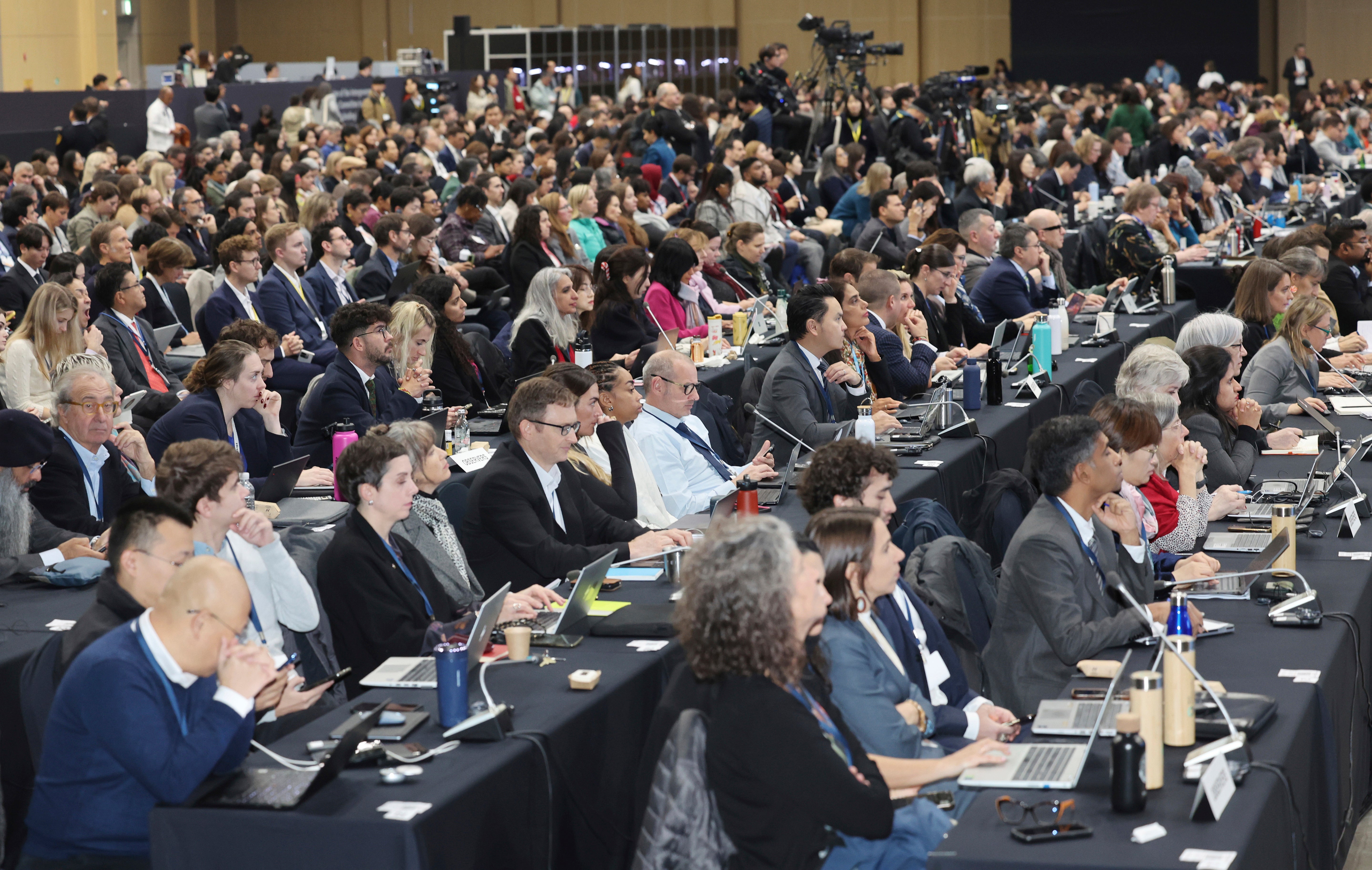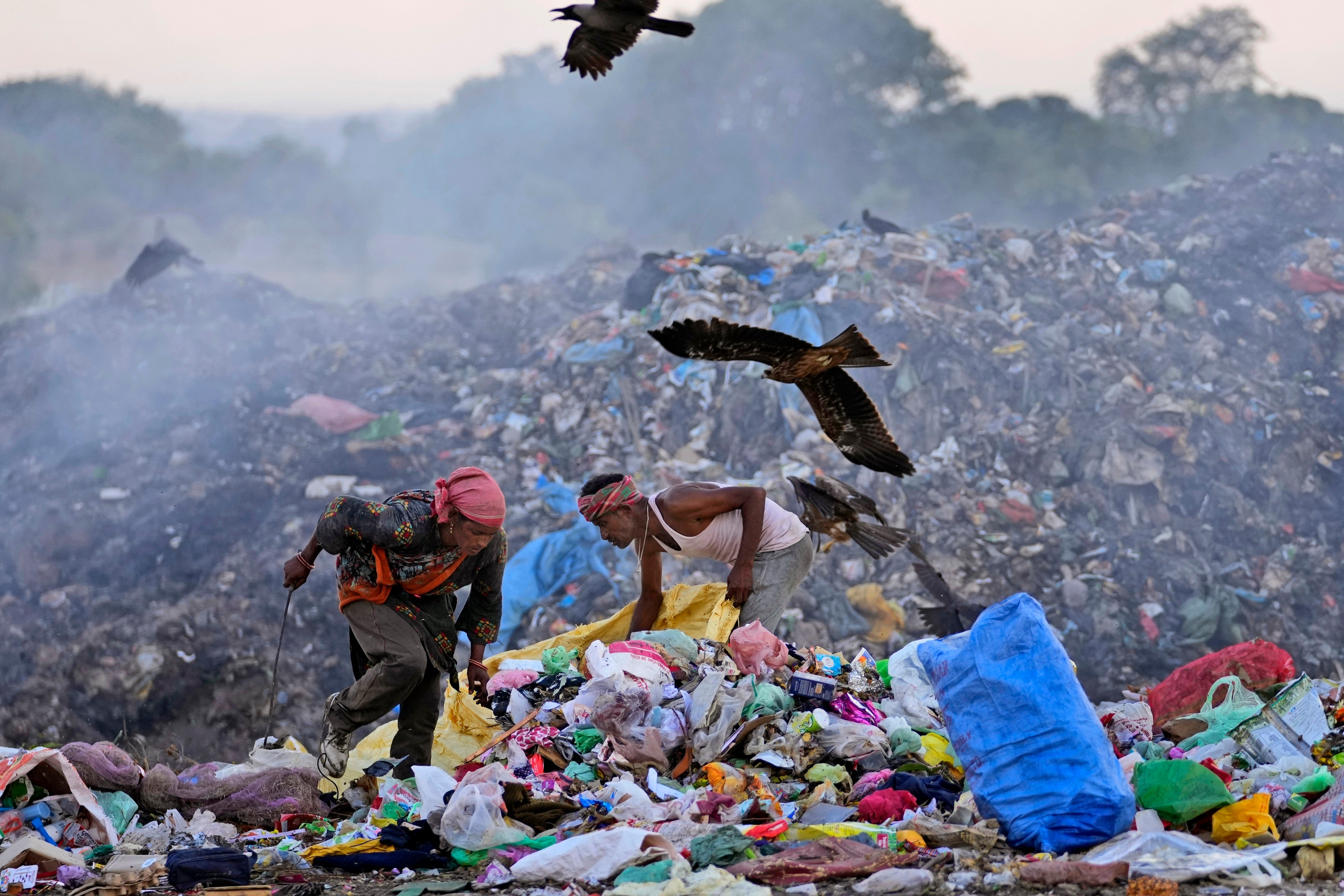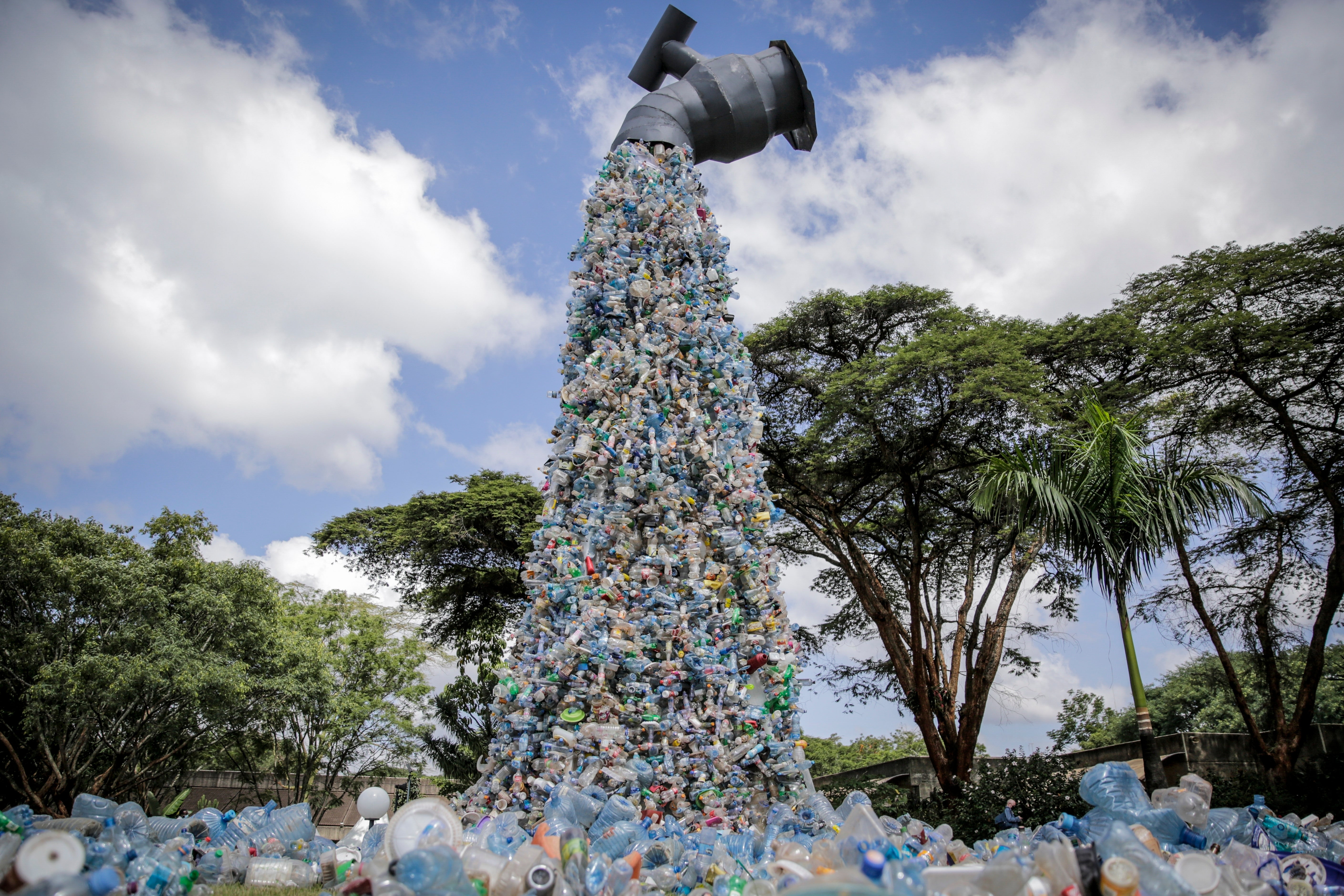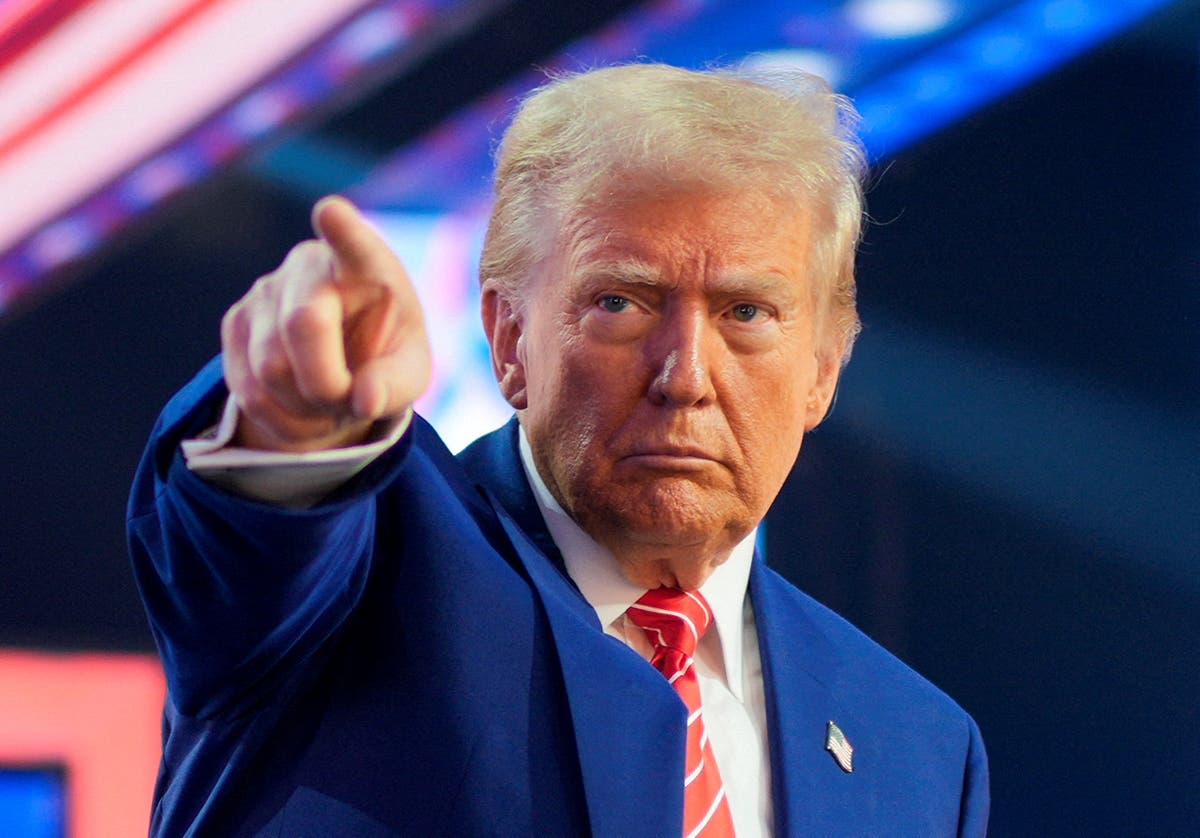Fears hundreds of fossil fuel lobbyists could derail crucial plastic pollution summit
Your support helps us to tell the story
From reproductive rights to climate change to Big Tech, The Independent is on the ground when the story is developing. Whether it’s investigating the financials of Elon Musk’s pro-Trump PAC or producing our latest documentary, ‘The A Word’, which shines a light on the American women fighting for reproductive rights, we know how important it is to parse out the facts from the messaging.
At such a critical moment in US history, we need reporters on the ground. Your donation allows us to keep sending journalists to speak to both sides of the story.
The Independent is trusted by Americans across the entire political spectrum. And unlike many other quality news outlets, we choose not to lock Americans out of our reporting and analysis with paywalls. We believe quality journalism should be available to everyone, paid for by those who can afford it.
Your support makes all the difference.
Hundreds of oil, gas, and petrochemical industry representatives are present at a crucial UN summit in South Korea, where delegates aim to draft the world’s first legally binding treaty against plastic pollution.
The final session of negotiations for a global plastics treaty, which started on Monday in Busan, South Korea, has drawn 220 fossil fuel and chemical industry lobbyists, according to an analysis by the Center for International Environmental Law (CIEL).
This is the highest number of industry representatives present at any talks in the treaty’s history. The final session of the talks started just a day after the Cop29 climate summit concluded in Baku with a disappointing outcome, where the presence of industry lobbyists was also a matter of concern.
The high number of lobbyists – larger than any single national delegation including host country South Korea – has sparked fears of industry influence over a treaty that aims to curb pollution across the life cycle of any given plastic product.
Environmental groups and civil society organisations warn that the sheer scale of lobbying threatens to derail the negotiations, which face a deadline to agree the treaty’s draft text by Sunday.
“Allowing fossil fuel and petrochemical companies to exert their influence in these negotiations is like letting foxes guard the henhouse,” said Von Hernandez, global coordinator of Break Free From Plastic.
“Their oversized presence threatens to turn a critical environmental agreement into a charade,” he said.
The presence of oil and gas industries at crucial UN climate and environmental talks has been a point of concern for a long time. The analysis by CIEL reveals trade giants such as Dow and ExxonMobil have sent multiple representatives, with some lobbyists even embedded in national delegations from countries including China, Iran, and Malaysia.
“These industries are employing tactics of obstruction, distraction, intimidation, and misinformation to protect their profits,” said Delphine Levi Alvares, global petrochemical campaign manager at CIEL.
“Their strategy is lifted straight from the climate negotiations playbook,” she said.
Civil society participants have raised concerns about the lack of safeguards to prevent industry capture of the UN talks.
“We must secure a treaty that includes strong conflict-of-interest protections and lobbying disclosures,” said Rachel Radvany, Environmental Health Campaigner at CIEL. “Without these measures, corporate interests will continue to undermine substantive progress.”

Matthew Kastner, a spokesperson for the American Chemistry Council, confirmed that 135 delegates were present at Busan from the International Council of Chemical Associations, saying this was “far outnumbered by the more than 1,600 total members of the NGO community”.
“Our delegation is here to listen to governments so we can understand the unique challenges they face and bring solutions that leverage innovations and the deep technical expertise our industries have that can help end plastic pollution,” he said.
The Independent approached Dow and ExxonMobil for comment but had not received a response at the time of publication.
Plastics are derived almost entirely from fossil fuels, with production accounting for 3 per cent of global greenhouse gas emissions.
However, as oil and gas markets are under increasing pressure from growth of renewables as a result of international climate treaties, experts say oil and gas industries are putting their bets on expanding the use of plastics.

Projections show that plastic production could triple by 2060, despite declining demand and profitability in saturated markets.
“Plastic markets are already oversupplied,” said Daniela Duran Gonzalez, Senior Legal Campaigner at CIEL. “Shrinking demand, closing facilities, and diminishing profit margins make expanding plastic production bad business. The treaty must include mandatory rules to halt new production facilities.”
Beyond the environmental costs, plastic poses a significant health risk. Many plastics contain endocrine-disrupting chemicals linked to cancer, infertility, and other illnesses.
“We cannot trust industries that have lied for decades about plastic recycling,” said Yuyun Ismawati, co-chair of the International Pollutants Elimination Network. “Their only agenda is to maintain their profits at any cost.”
Grassroots groups, scientists, and Indigenous representatives say while fossil fuel and chemical industries with vast resources send a record number of lobbyists to UN talks, campaigners face significant hurdles to attend these summits and make their voices heard. Many report financial and logistical challenges to participating in the talks, further skewing the balance of power.
“Indigenous Peoples are fighting for survival, not business interests,” said Ana Rocha, director of the global plastics program at the Global Alliance for Incinerators Alternatives (GAIA). “Yet they are forced to compete for attention with the very industries poisoning their communities.”
The presence of corporate lobbyists also restricts civil society access, they say.
“Eight out of 10 citizens in Korea want reduced plastic production,” said YU Sammy of Green Korea United. “Yet civil society representatives must line up for hours just to enter the negotiation halls, which are packed with petrochemical industry lobbyists.”

Pro-industry narratives have dominated the lead-up to INC-5, with lobbyists touting the “massive societal benefits” of plastics and some nations asserting their “sovereign right to exploit resources”.
However, research challenges these claims. Plastics contribute just 0.6 per cent to the global economy, and reducing plastic production is unlikely to harm economic growth.
“The mandate for this treaty is clear: end plastic pollution,” said Levi Alvares. “Independent science and frontline communities show this cannot happen without reducing production. The choice is clear, our lives or their bottom line.”
Despite these challenges, however, UNEP executive director Inger Andersen said she is optimistic, urging negotiators to focus on consensus.
“We know what we need to do,” Ms Andersen said on Wednesday. “If we want this deal, now is the time to act.”
As the INC-5 talks approach their conclusion, observers warn that failure to address industry influence could undermine the treaty’s goals. Without ambitious measures, including production caps and conflict-of-interest safeguards, the treaty risks becoming another example of corporate-driven compromise.
“This is a once-in-a-lifetime opportunity,” said Greenpeace’s Graham Forbes. “By the end of the week, member states must deliver a treaty that prioritises human health and a livable planet over CEO payouts. The global majority demands action.”
For negotiators in Busan, the next few days will determine whether the world’s first plastics treaty becomes a transformative step or a missed opportunity in the fight against plastic pollution.
Source link


